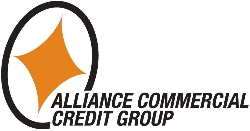When we talk about business financing, we have to admit there is more than just one way to obtain funding for your company. There are the common ways of securing loans by going to the bank, sitting with a banker, filling out forms, and keeping your fingers and toes crossed in hopes that you get approved.
But we’re here to tell you there are also other options available to you. That’s where we come in, using lesser-known options to create finances for your business. You may not be familiar with these options, so we’d like to help break them down for you.
- Hard money loans
These are also called bridge loans. They are a short-term solution to give you an opportunity to correct what went wrong in your business’ finances. They can be structured for 12-36 months, and are based on the value of your property. You can get up to 65% LTV.
- Cash-out refinance
In this case, you may have equity in a property that you can’t access with a bank. Bad credit, weak financials… face it we just came out of a tough recession and you are not alone on this. Even if you could qualify for a bank loan they are not interested in cash-out refinances. Private / Bridge lenders can provide cash out for improved commercial properties. They will loan up to 65% LTV Max. If you own a property or have very little debt against it, and can use the cash for an infusion of capital into your operating company or for the right investment opportunity, a bridge lender may be what you are looking for.
- Asset-based financing solutions
Asset-based financing works because it is based on collateral. Profitability, good credit, and perfect ratios are not what an asset based lender is concerned with. They are concerned with the value of the asset that they are loaning against. These loans are often tied to inventory, accounts receivable, machinery, and equipment.
- Factoring
In factoring, you essentially sell your accounts receivable to a third party, called the factor. The factor then provides you with a percentage of the accounts receivable as immediate cash. The collateral used to borrow against (your accounts receivable) is based on the credit worthiness of your customers. In other words, factors purchase your credit-worthy accounts receivable at a small discount and convert your invoices (sales) into immediate cash. Factoring is not a loan. There is no debt repayment, no compromise to your balance sheet, no long-term agreements, or delays associated with other methods of raising capital.
- SBA 504 / 7 (a)
Loan This is a loan provided by the SBA to businesses for the purpose of purchasing assets like property and equipment. The loan is split between three parties (the owner, a conventional lender, and a certified development company). There are qualifications and restrictions for this loan.
Every financial situation is different, and these loans are not right for all. We are here to explain them in more detail, and help you find a financing option that is right for you.

